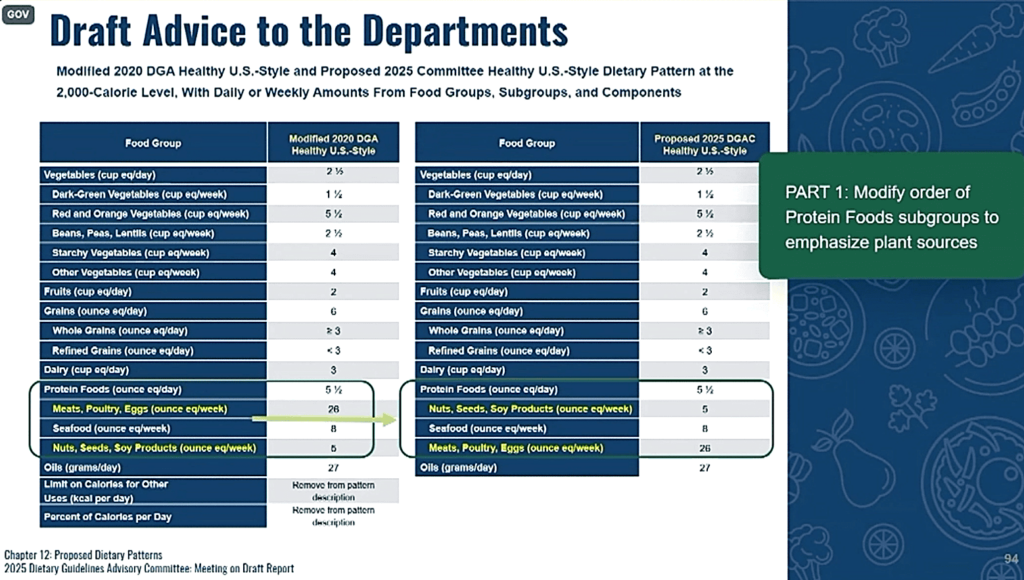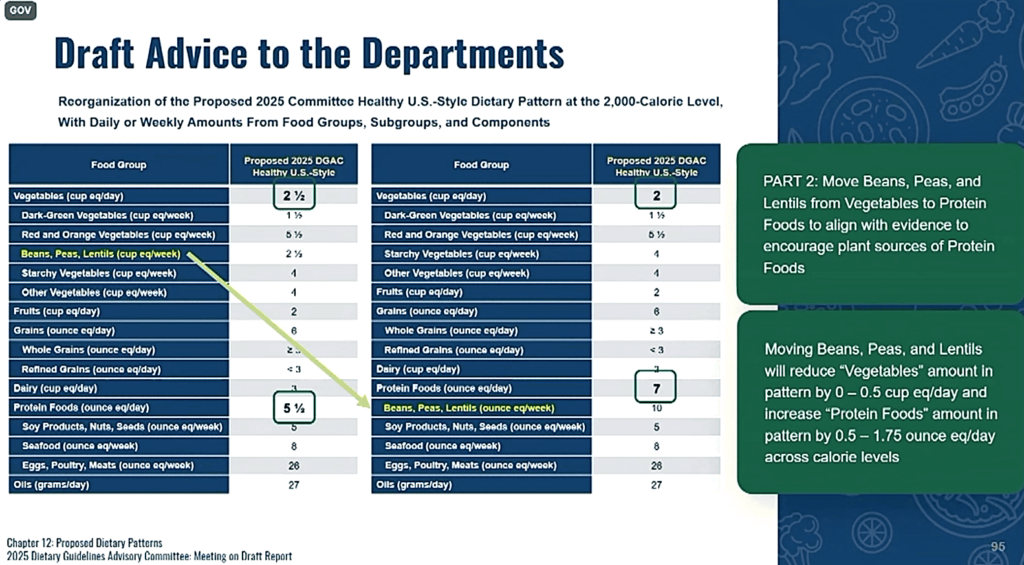Americans are being encouraged to reduce red meat consumption and embrace plant-based proteins in a move that could reshape the country’s dietary norms. Scientists advising the US government on the forthcoming 2025–2030 Dietary Guidelines have proposed transformative changes aimed at enhancing public health and promoting environmental sustainability.
These recommendations align with the EAT-Lancet Commission’s Planetary Health Diet, which advocates for limiting red meat consumption—beef, pork, and lamb—to just 11 pounds annually. In stark contrast, the USDA reports that Americans currently consume an average of 107 pounds of red meat per year—nearly 10 times the recommended amount.
Why Cutting Back on Red Meat is Crucial
The environmental and health implications of red meat consumption are significant. Beef, for example, is among the most carbon-intensive foods, accounting for one-third of US food-related greenhouse gas emissions. Additionally, red meat production places immense strain on land and water resources—unsustainable practices as the global population approaches 10 billion by 2050.
From a health perspective, high red meat consumption has been linked to a range of chronic conditions, including cardiovascular disease, obesity, type 2 diabetes, and cancer. These concerns have led the EAT-Lancet Commission to recommend a 90% reduction in red meat intake, advocating for a predominantly plant-based diet instead.
Proposed Changes to the Guidelines
During their final meeting, the Dietary Guidelines Advisory Committee proposed several bold changes, including:
- Reclassifying plant-based foods: Beans, peas, and lentils would move from the vegetable category to the protein group, emphasising their nutritional significance.
- Prioritising plant-based proteins: Foods like soy, nuts, and seeds would be given precedence over animal proteins, such as meat, poultry, and eggs.
- Promoting plant-forward eating: Recommendations include diets rich in vegetables, fruits, legumes, whole grains, low- and non-fat dairy, fish, seafood, and unsaturated fats.

Courtesy National Institutes of Health (NIH)
Researchers have highlighted the need to tackle misconceptions around protein. “There’s a branding crisis when it comes to protein—people automatically associate it with meat. Highlighting plant sources more prominently could help correct this misconception,” she explained.
These adjustments aim to align the guidelines with growing scientific evidence supporting plant-based diets for both health and environmental benefits.

Courtesy National Institutes of Health (NIH)
Backlash from the Meat Industry and Consumers
Not surprisingly, these proposals have drawn sharp criticism. The National Cattlemen’s Beef Association, labelled the recommendations as “out of touch” and “dangerous,” arguing that plant-based proteins cannot match the nutrient density of lean red meat.
Some consumers have also expressed outrage, with one commenter declaring,
“They can have my red meat when they pry it from my cold, dead fingers dripping in medium-rare hamburger juice.”
Resistance reflects deep cultural ties to meat consumption. A 2021 poll found that 59% of Americans view eating meat as part of their way of life. Meanwhile, fewer Americans are actively reducing their red meat intake, and the number of vegans has fallen to a 10-year low.
The Bigger Picture: Health, Climate, and Awareness
Despite the backlash, the evidence supporting reduced red meat consumption is overwhelming. Red meats like beef contribute disproportionately to greenhouse gas emissions and strain natural resources. Simultaneously, plant-based diets offer a myriad of health benefits.
Yet, many Americans remain unaware of the environmental impact of their food choices. Polls show that 40% of Americans don’t believe reducing red meat consumption would lower emissions, and 74% fail to associate meat-eating with climate change.
What Comes Next?
The advisory committee has received nearly 10,000 public comments, underscoring the contentious nature of these proposed changes. Their final report will be submitted to the US Department of Agriculture (USDA) and the Department of Health and Human Services (HHS) in December. After a 60-day public consultation period, the official guidelines are expected to be published in late 2025.
While it remains uncertain whether all recommendations will be adopted, prioritising plant-based proteins would mark a significant step forward in addressing both public health and environmental concerns. The US would join European countries like Germany, Austria, and Norway, which have updated their dietary guidelines to encourage plant-based eating.
If implemented, the new guidelines could reshape school meal programmes, influence food industry practices, and set the stage for a healthier and more sustainable future.
Read more
- Once submitted, the report will be publicly accessible on DietaryGuidelines.gov.
- You can find the Scientific Report Meeting videocast here.
- 2025 Dietary Guidelines Advisory Committee: Scientific Report Meeting https://www.dietaryguidelines.gov/scientific-report-meeting

